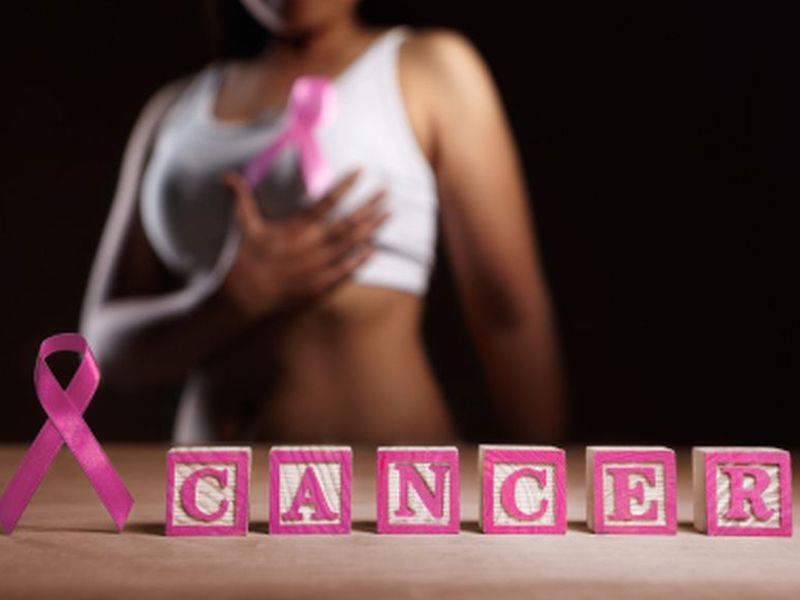U.S. Task Force Updates Breast Cancer Gene Testing Recommendations
By Serena GordonHealthDay Reporter

TUESDAY, Aug. 20, 2019 (HealthDay News) -- Mutations in two genes -- BRCA1 and BRCA2 -- are known to significantly increase the risk of breast cancer, but experts have long debated which women should be tested for them.
New recommendations from the U.S. Preventive Services Task Force (USPSTF) may help clarify who can benefit most from a risk assessment test. If a woman has a high risk, the task force recommends she see a genetic counselor and possibly be tested for the BRCA mutations.
"Breast cancer is very prevalent, but the BRCA founder mutations are rare, occurring in less than 1% of all women," explained task force member Dr. Carol Mangione, a professor of medicine and public health at the University of California, Los Angeles.
Deciding whether to have a test for these mutations is "a complex decision with a lot of pros and cons to weigh," she said. "Women who are known to be positive sign up for some pretty dramatic surgeries and medications."
For example, women with a BRCA mutation might have both breasts removed to prevent cancer from developing.
"In women who don't have an increased risk [of a BRCA mutation], the potential harms outweigh the benefits of testing," Mangione said.
The latest USPSTF recommendations for BRCA testing were published Aug. 20 in Journal of the American Medical Association.
So who should have that initial risk assessment?
According to the task force, it is appropriate for women with a personal or family history of these cancers:
- Breast
- Ovarian
- Fallopian tube
- Peritoneal (the tissue lining the abdomen).
Women with an ancestry linked to BRCA mutations, such as those of Ashkenazi Jewish descent, should also have a risk assessment, the task force said.
Other groups that may have an increased risk of a BRCA mutation due to ancestry include some African-Americans, Mexicans, Nigerians, and people from India, according to an editorial published Aug. 20 in JAMA Network Open. Its lead author is Dr. Padma Sheila Rajagopal of the University of Chicago.
Depending on the results of a risk assessment, a woman may not end up having genetic counseling or testing. It's also possible that a woman may have genetic counseling and then decide BRCA testing would not benefit her.
The task force said some women don't need a risk assessment. These include women who don't have a family history of the four cancers or an ancestry associated with BRCA mutations.
Dr. Len Lichtenfeld, interim chief medical officer of the American Cancer Society, said BRCA testing is a "very real" issue. "These recommendations may start a needed discussion, but we can do much better," he said, calling the task force's approach "conservative."
He noted that it didn't address BRCA testing in men, who can also get breast cancer (rarely) and other BRCA-related cancers.
Lichtenfeld also was concerned that the USPSTF didn't address direct-to-consumer testing. A number of companies offer BRCA testing online. But these tests might not be as well-controlled as a medical test, so the findings might not be accurate.
"A woman might get tested and have a mutation that isn't discovered by the online test," Lichtenfeld said.
Mangione said the over-the-counter genetic tests are still new and the task force didn't have enough evidence to make a recommendation. Still, she noted, "With an OTC test, you don't know what you're getting, and a positive test could create quite a bit of alarm."
Lichtenfeld also took issue with the recommendation that every woman with a high risk based on her doctor's risk assessment should then see a genetic counselor before testing.
"The recommendations are relying on genetic counselors, but too few are available. This recommendation will restrict access to screening for some women," he said.
According to Rajagopal's editorial, the United States has fewer than 700 cancer-specific genetic counselors available.
More information
Learn more about the BRCA testing from the U.S. National Cancer Institute.

The news stories provided in Health News and our Health-E News Newsletter are a service of the nationally syndicated HealthDay® news and information company. Stories refer to national trends and breaking health news, and are not necessarily indicative of or always supported by our facility and providers. This information is provided for informational and educational purposes only, and is not intended to be a substitute for medical advice, diagnosis, or treatment.

